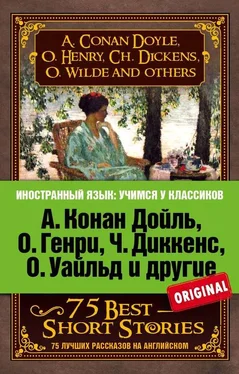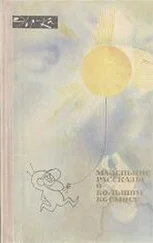So they would. Just in time. ‘Only the basket, then. And, Laura!’ – her mother followed her out of the marquee – ‘don’t on any account—’
‘What mother?’
No, better not put such ideas into the child’s head! ‘Nothing! Run along.’
It was just growing dusky as Laura shut their garden gates. A big dog ran by like a shadow. The road gleamed white, and down below in the hollow the little cottages were in deep shade. How quiet it seemed after the afternoon. Here she was going down the hill to somewhere where a man lay dead, and she couldn’t realize it. Why couldn’t she? She stopped a minute. And it seemed to her that kisses, voices, tinkling spoons, laughter, the smell of crushed grass were somehow inside her. She had no room for anything else. How strange! She looked up at the pale sky, and all she thought was, ‘Yes, it was the most successful party.’
Now the broad road was crossed. The lane began, smoky and dark. Women in shawls and men’s tweed caps hurried by. Men hung over the palings; the children played in the doorways. A low hum came from the mean little cottages. In some of them there was a flicker of light, and a shadow, crab-like, moved across the window. Laura bent her head and hurried on. She wished now she had put on a coat. How her frock shone! And the big hat with the velvet streamer – if only it was another hat! Were the people looking at her? They must be. It was a mistake to have come; she knew all along it was a mistake. Should she go back even now?
No, too late. This was the house. It must be. A dark knot of people stood outside. Beside the gate an old, old woman with a crutch sat in a chair, watching. She had her feet on a newspaper. The voices stopped as Laura drew near. The group parted. It was as though she was expected, as though they had known she was coming here.
Laura was terribly nervous. Tossing the velvet ribbon over her shoulder, she said to a woman standing by, ‘Is this Mrs. Scott’s house?’ and the woman, smiling queerly, said, ‘It is, my lass.’
Oh, to be away from this! She actually said, ‘Help me, God,’ as she walked up the tiny path and knocked. To be away from those staring eyes, or to be covered up in anything, one of those women’s shawls even. I’ll just leave the basket and go, she decided. I shan’t even wait for it to be emptied.
Then the door opened. A little woman in black showed in the gloom.
Laura said, ‘Are you Mrs. Scott?’ But to her horror the woman answered, ‘Walk in please, miss,’ and she was shut in the passage.
‘No,’ said Laura, ‘I don’t want to come in. I only want to leave this basket. Mother sent—’
The little woman in the gloomy passage seemed not to have heard her. ‘Step this way, please, miss,’ she said in an oily voice, and Laura followed her.
She found herself in a wretched little low kitchen, lighted by a smoky lamp. There was a woman sitting before the fire.
‘Em,’ said the little creature who had let her in. ‘Em! It’s a young lady.’ She turned to Laura. She said meaningly, ‘I’m ’er sister, miss. You’ll excuse ’er, won’t you?’
‘Oh, but of course!’ said Laura. ‘Please, please don’t disturb her. I–I only want to leave—’
But at that moment the woman at the fire turned round. Her face, puffed up, red, with swollen eyes and swollen lips, looked terrible. She seemed as though she couldn’t understand why Laura was there. What did it mean? Why was this stranger standing in the kitchen with a basket? What was it all about? And the poor face puckered up again.
‘All right, my dear,’ said the other. ‘I’ll thenk the young lady.’
And again she began, ‘You’ll excuse her, miss, I’m sure,’ and her face, swollen too, tried an oily smile.
Laura only wanted to get out, to get away. She was back in the passage. The door opened. She walked straight through into the bedroom, where the dead man was lying.
‘You’d like a look at ’im, wouldn’t you?’ said Em’s sister, and she brushed past Laura over to the bed. ‘Don’t be afraid, my lass,’ – and now her voice sounded fond and sly, and fondly she drew down the sheet – ‘’e looks a picture. There’s nothing to show. Come along, my dear.’
Laura came.
There lay a young man, fast asleep – sleeping so soundly, so deeply, that he was far, far away from them both. Oh, so remote, so peaceful. He was dreaming. Never wake him up again. His head was sunk in the pillow, his eyes were closed; they were blind under the closed eyelids. He was given up to his dream. What did garden-parties and baskets and lace frocks matter to him? He was far from all those things. He was wonderful, beautiful. While they were laughing and while the band was playing, this marvel had come to the lane. Happy… happy… All is well, said that sleeping face. This is just as it should be. I am content.
But all the same you had to cry, and she couldn’t go out of the room without saying something to him. Laura gave a loud childish sob.
‘Forgive my hat,’ she said.
And this time she didn’t wait for Em’s sister. She found her way out of the door, down the path, past all those dark people. At the corner of the lane she met Laurie.
He stepped out of the shadow. ‘Is that you, Laura?’
‘Yes.’
‘Mother was getting anxious. Was it all right?’
‘Yes, quite. Oh, Laurie!’ She took his arm, she pressed up against him.
‘I say, you’re not crying, are you?’ asked her brother.
Laura shook her head. She was.
Laurie put his arm round her shoulder. ‘Don’t cry,’ he said in his warm, loving voice. ‘Was it awful?’
‘No,’ sobbed Laura. ‘It was simply marvellous. But Laurie—’ She stopped, she looked at her brother. ‘Isn’t life,’ she stammered, ‘isn’t life—’ But what life was she couldn’t explain. No matter. He quite understood.
‘Isn’t it, darling?’ said Laurie.
Marriage à la Mode [400](Katherine Mansfield)
On his way to the station William remembered with a fresh pang of disappointment that he was taking nothing down to the kiddies. Poor little chaps! It was hard lines on them. Their first words always were as they ran to greet him, ‘What have you got for me, daddy?’ and he had nothing. He would have to buy them some sweets at the station. But that was what he had done for the past four Saturdays; their faces had fallen last time when they saw the same old boxes produced again.
And Paddy had said, ‘I had red ribbing on mine bee-fore!’
And Johnny had said, ‘It’s always pink on mine. I hate pink.’
But what was William to do? The affair wasn’t so easily settled. In the old days, of course, he would have taken a taxi off to a decent toyshop and chosen them something in five minutes. But nowadays they had Russian toys, French toys, Serbian toys – toys from God knows where. It was over a year since Isabel had scrapped the old donkeys and engines and so on because they were so ‘dreadfully sentimental’ and ‘so appallingly bad for the babies’ sense of form.’
‘It’s so important,’ the new Isabel had explained, ‘that they should like the right things from the very beginning. It saves so much time later on. Really, if the poor pets have to spend their infant years staring at these horrors, one can imagine them growing up and asking to be taken to the Royal Academy.’
And she spoke as though a visit to the Royal Academy was certain immediate death to any one…
‘Well, I don’t know,’ said William slowly. ‘When I was their age I used to go to bed hugging an old towel with a knot in it.’
The new Isabel looked at him, her eyes narrowed, her lips apart.
‘Dear William! I’m sure you did!’ She laughed in the new way.
Читать дальше
Конец ознакомительного отрывка
Купить книгу












